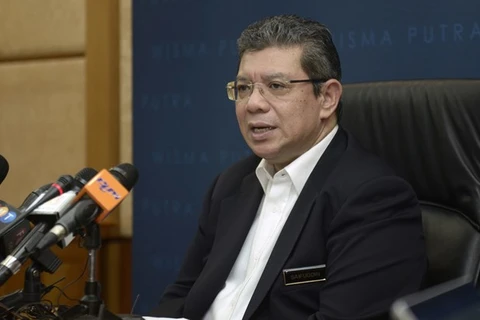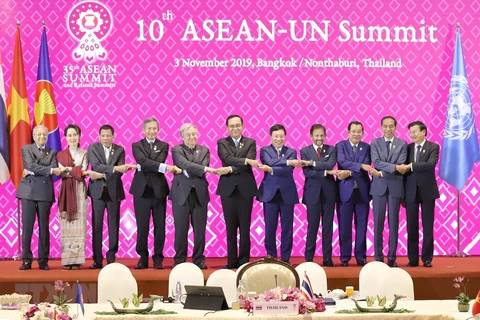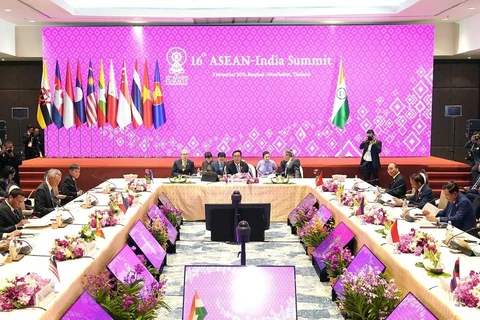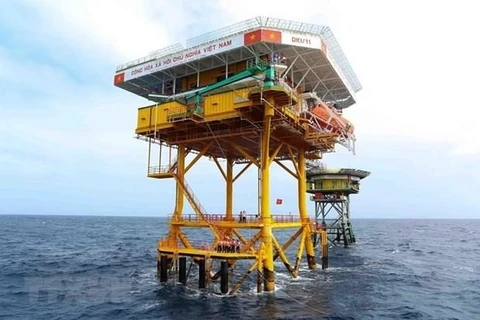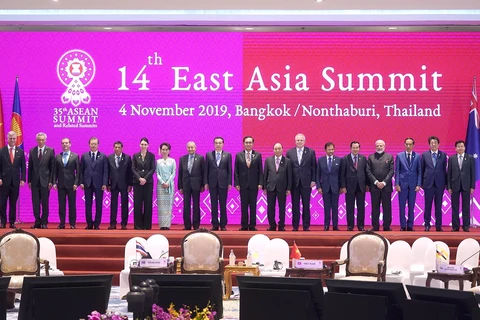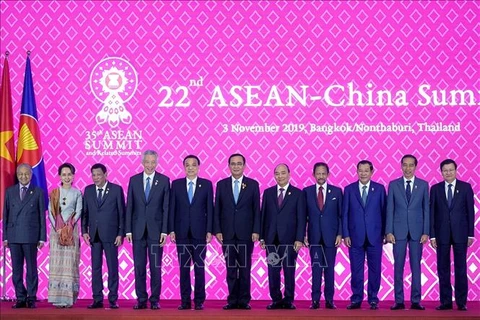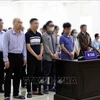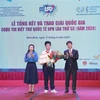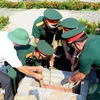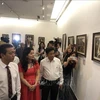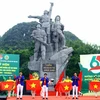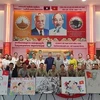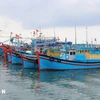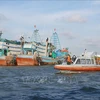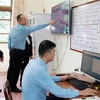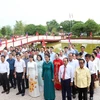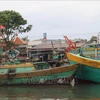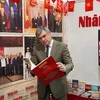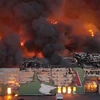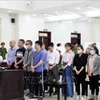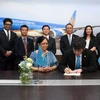Hanoi (VNA) – “Cooperation for regional security and development” was the topic of the 11th South China Sea International Conference which opened in the capital city of Hanoi on November 6.
Co-hosted by the Diplomatic Academy of Vietnam (DAV), Foundation for East Sea Studies (FESS) and Vietnam Lawyers Association (VLA), the two-day event brought together more than 50 speakers and some 250 officials, scholars and diplomats of Vietnam and foreign countries.
In his opening remarks, VLA President Nguyen Van Quyen said the conference was a chance for domestic and foreign lawyers to share measures to maintain peace and security in the region. The VLA has an increasingly significant voice in security matters, including the East Sea issues, he said.
Meanwhile, DAV President Nguyen Vu Tung said since it was initiated 10 years ago, the conference has become an important event on the East Sea where experts and scholars who are interested in maritime security and the East Sea in particular to share their information and ideas. After its 10 editions, the conference has received more than 350 reports from leading experts and scholars, and welcomed over 2,000 delegates, he said.
Although cooperation for development remains a common trend between the Association of Southeast Asian Nations (ASEAN) and its partners, there are concerns over growing tensions, violations of sovereignty and threats to use force in the East Sea, Tung stressed.
Co-hosted by the Diplomatic Academy of Vietnam (DAV), Foundation for East Sea Studies (FESS) and Vietnam Lawyers Association (VLA), the two-day event brought together more than 50 speakers and some 250 officials, scholars and diplomats of Vietnam and foreign countries.
In his opening remarks, VLA President Nguyen Van Quyen said the conference was a chance for domestic and foreign lawyers to share measures to maintain peace and security in the region. The VLA has an increasingly significant voice in security matters, including the East Sea issues, he said.
Meanwhile, DAV President Nguyen Vu Tung said since it was initiated 10 years ago, the conference has become an important event on the East Sea where experts and scholars who are interested in maritime security and the East Sea in particular to share their information and ideas. After its 10 editions, the conference has received more than 350 reports from leading experts and scholars, and welcomed over 2,000 delegates, he said.
Although cooperation for development remains a common trend between the Association of Southeast Asian Nations (ASEAN) and its partners, there are concerns over growing tensions, violations of sovereignty and threats to use force in the East Sea, Tung stressed.
Speaking at the opening ceremony, Vietnamese Deputy Minister of Foreign Affairs Le Hoai Trung said the East Sea has the most important and busiest shipping routes in the world. As a bridge connecting the Indian Ocean and the Pacific Ocean as well as the Asian and Oceania continents, over 50 percent of the world’s marine trade worth 5 trillion USD each year has been transported through the East Sea, hence, security and safety of navigation in the waters are of great importance to the global trade and prosperity, he said.
The East Sea also plays an important role in strategic initiatives of world powers such as the US, China, Japan, Australia, India and the ASEAN, Trung said, adding that all developments in the East Sea have attracted attention from not only regional nations but also the whole international community.
The Deputy Minister highlighted the importance of the 1982 United Nations Convention on the Law of the Sea (UNCLOS), describing it as the UN’s “Charter on oceans” with the participation of 168 members. The 1982 UNCLOS created a legal framework for the preservation and sustainable use of oceans and marine resources as recognised in the 2030 Agenda for Sustainable Development adopted by UN member states in 2015, he said.
Based on the 1982 UNCLOS, many practical cooperation activities at the regional and global levels have been carried out to cope with common challenges such as climate change, sea level rise, decreased aquatic resources and plastic waste as well as other challenges like security and safety of navigation and aviation, piracy and armed crime, according to the Deputy Minister.
The 1982 UNCLOS is also a leading foundation for the settlement of claims on overlapping sea areas and the demarcation of seas among countries, he stressed.
Vietnam, Canada and the European Union (EU) will co-organise a workshop on the enforcement of the 1982 UNCLOS and emerging marine issues within the framework of the ASEAN Regional Forum (ARF) in Hanoi next week, Trung told the participants.
Trung expressed his belief that maintaining peace and stability and promoting cooperation in the East Sea are not only the interests and responsibilities of regional nations but also the interests and responsibilities of the whole international community.
He expected that the conference would put forth measures to ensure the efficiency of the 1982 UNCLOS and the respect for law; to maintain the important role of multilateral mechanisms such as the UN and ASEAN in fostering regional cooperation; and to step up international cooperation in dealing with urgent issues at sea, including disputes over sovereignty and sovereignty rights, and ensuring livelihoods for coastal residents.
The annual conference will include six plenary and six roundtable sessions, focusing on various themes such as the South China Sea state of affairs: threats, risks and opportunities; the South China Sea in competing visions; the South China Sea in multilateral forums; incident prevention and confidence building; and strengthening foundation for peace and rules-based order.
As part of the conference, a special session will be held to celebrate the 25th anniversary of the entry into force of the 1982 UNCLOS which has been the bedrock of the rules-based order at sea over the past 25 years./.
VNA


